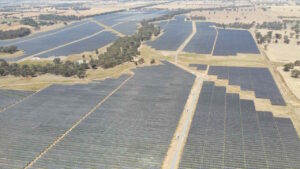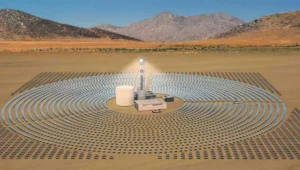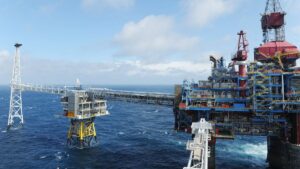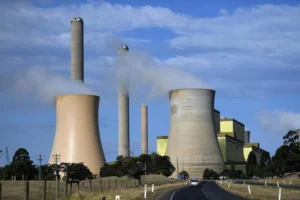Carnegie Clean Energy, widely regarded as the leading wave energy developer in the country, announced on Friday that its long-serving CEO of 10 years, Michael Ottaviano, would leave the company and has been replaced by former chief technology officer Jonathan Fievez.
Carnegie said Ottaviano’s resignation as CEO and managing director took effect from Friday, although he will remain employed by the company until the end of 2018 to “assist in the transition of leadership.”
“Jonathan has a deep understanding of business, renewables and technology development and is well placed to lead the continued commercialisation of Carnegie’s CETO technology,” chairman Terry Stinson said in a statement.
Fievez is a qualified Mechatronic Engineer with broad experience covering areas such as research, product development, mechanical and electronic design, intellectual property management and customer liaison. He had previously worked on aviation structural monitoring systems throughout Europe utilised in Eurofighter, Eurocopter and A380 Air designs.
“The company thanks Michael for his unwavering leadership and commitment to Carnegie. He and the team have taken CETO from a concept through to one of the most advanced wave technologies globally and driven the development of our Northam solar and Garden Island microgrid projects,” Stinson said.
However, Ottaviano’s departure comes as the company’s share price hits a low of less than one cent, and after major write downs of the value of the CETO intellectual property, and controversy about the sale of the recently purchased but loss making renewable micro-grid business Energy Made Clean to the listed Tag Pacific and its merger with that company’s MPower unit.
In a separate announcement, the company said that the merger would be renegotiated, with Carnegie no longer having to pay money as part of its end of the deal, and an adjustment made to the amount of shares allocated as part of the purchase.
The company also announced that it would sell a further stake in its soon-to-be complete 10MW Northam solar farm to co-owner Indigenous Business Australia for about $2.5 million. The exact equity amount to be purchased will be determined over the coming weeks once an independent valuation process has been completed.
Both decisions appear designed to try to conserve cash, which stood at $8.6 million at the end of last financial year.
The company has also announced delays to its flagship wave project in Albany, and cited concerns over the future of the federal government’s proposed changes to the R&D Tax Incentive scheme, which has been a major source of revenue for the company, and changes to payments from the WA government.
A week earlier, Carnegie warned that any changes to the R&D tax incentive could lead to a delay in the Albany Wave Energy Project, which will see the deployment of its full-scale CETO technology, and/or force it to seek additional funding.
“Carnegie’s ability to continue to progress the project is constrained until this uncertainty is resolved,” it said at the time.
In its annual accounts released in late August, Carnegie said it had taken a non-cash write down of $35 million from the value of the CETO intellectual property and $12 million from the value of Energy Made Clean.
The company attributed the CET write-down to change from a discounted cashflow to a relief from royalty method, but also because of the increasing cost competitiveness of alternative renewable energy technologies, particularly wind and solar, and because of the recent reduction in the market capitalisation of Carnegie.
It also blamed a slower-than-expected uptake up of utility renewable energy systems in Western Australia and off-grid nationally on the ongoing subsidies of diesel power generation in remote areas by the Federal Government.
“(That) is slowing the uptake of off-grid, renewables based microgrids which are otherwise capable of providing cheaper, cleaner and more reliable power than diesel power stations alone,” the company said.
In its latest announcement, Carnegie said the 10MW Northam Solar Farm cis 90 per cent complete, and should commence commercial operations in the last quarter of this year.
The 2MW solar PV and 2MW/0.5MWh battery system at the Garden Island micro-grid was also nearly complete, despite delays caused by infrastructure upgrades at HMAS Stirling.
Fievez will receive a gross salary will be $250,000 per annum plus statutory superannuation, incentive bonus up to 30 per cent of gross salary, payable in cash and 10 million options with a strike price of about 145 per cent of the market value of the Company’s shares at the date of issue.










